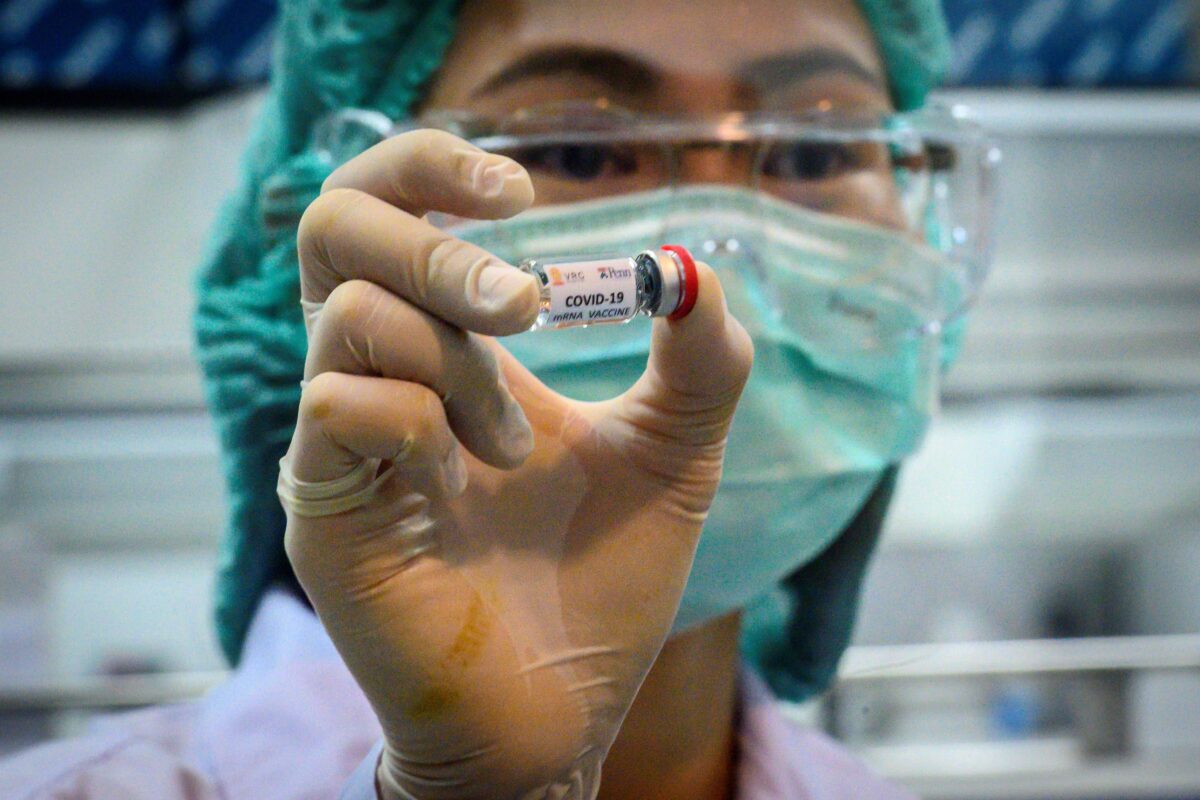


The manufacture, sale, delivery, holding, or offering for sale of any part of livestock or meat food product containing an mRNA vaccine or vaccine material without clear labels stating the vaccine contents could become prohibited in Tennessee, a new bill filed in the Tennessee General Assembly proposed.
The bill, filed by Republican legislators in the House and Senate, defines mRNA vaccine or vaccine material as a substance used to stimulate the production of antibodies and provide immunity against disease by introducing messenger ribonucleic acid (mRNA) that corresponds to a viral protein.
State Rep. Susan Lynn, the bill’s Republican sponsor in the House, said the COVID-19 vaccine “raised enough questions” that food producers shouldn’t indiscriminately use it on animals.
“I don’t think it’s a good idea until we know more,” she said in an interview with The Epoch Times. “The slower you go the better it is sometimes to make sure no mistakes are made impacting human lives or stocks of animals.”
Lynn said the bill’s primary sponsor, state Sen. Frank Nicely, asked her to sign on because of her previous work on bills related to health and animals. Nicely did not return requests for comment by press time.
She said if the bill passes, farmers can designate the animals are being raised in Tennensee and then also have an insignia on them stating no mRNA vaccine was used in this animal.
“There really is a market for this,” she said. “I’ve talked to farmers who say their customers want their meat not to have as few antibiotics and vaccines as possible, as well as things like being grass-fed.
She added the bill could be beneficial to farmers because it helps small farms with their breeding operations by standing out and also for the public because it gives them the particular product they are looking for.
“If you want an animal that’s been bred in Tennessee or one that’s not had an mRNA vaccine, you’ll have the assurance of knowing it’s local and non-vaccinated.”
She said the next step for the bill is to move to the agricultural committee for debate.
“I hope it’ll spark a conversation about our food supply,” she added. “Clearly, we’ve done a lot of things wrong with out food supply, or else type 2 diabetes and heart disease would not be thriving. Clearly I think a lot of people believe there is a problem with the vaccines and that needs to be sorted out and those people be helped.”
No vaccines are used in food products in Tennessee, Kim Doddridge, Public Information Officer for the Tennessee Department of Agriculture, said in an email to The Epoch Times.
However, she said some livestock ultimately slaughtered for food may have been vaccinated against disease at some point, all meat products sold commercially for human consumption must be inspected and pass United States Department of Agriculture (USDA) inspection first.
“Vaccines are not present in animal carcasses,” she added. “Milk from animals is also tested to ensure it is antibiotic free.”
Doddridge added the department does not track animal vaccine ingredients, so she was unable to answer whether any mRNA vaccines are currently used in animals in Tennessee. She said the USDA Animal & Plant Health Inspection Service approves vaccines for animals.
As far as the department’s opinion on the bill, she said TDA reserves taking a position until a bill is calendared to be heard in a committee.
The National Library of Medicine’s National Center for Biotechnology Information says in the prevention of infectious diseases, mRNA vaccines hold great promise in animals.
“In past years, several mRNA vaccines have entered clinical trials and have shown promise for offering solutions to combat emerging and re-emerging infectious diseases such as rabies, Zika, and influenza,” a research paper stated. “Recently, the successful application of mRNA vaccines against COVID-19 has further validated the platform and opened the floodgates to mRNA vaccine’s potential in infectious disease prevention, especially in the veterinary field.”
